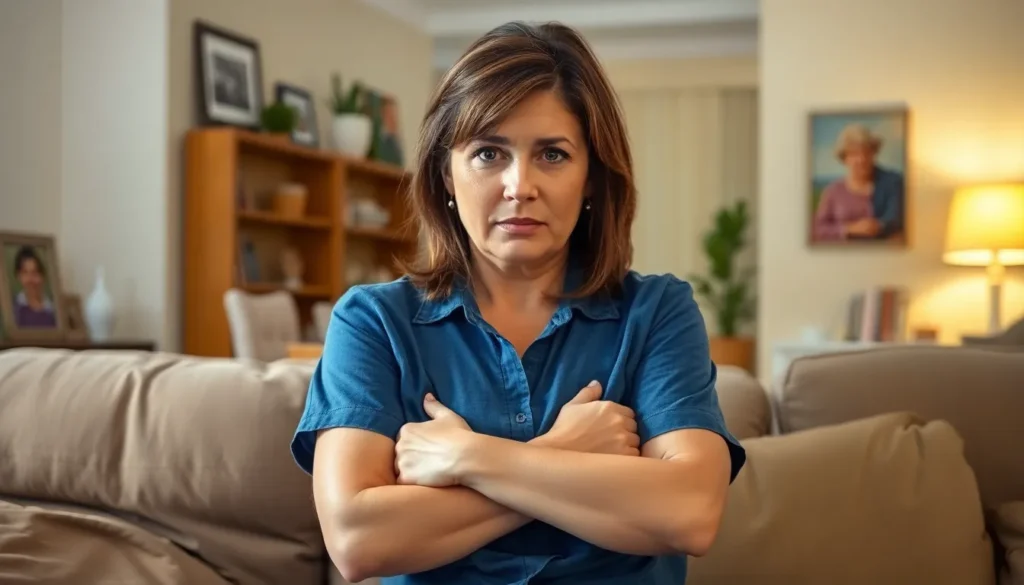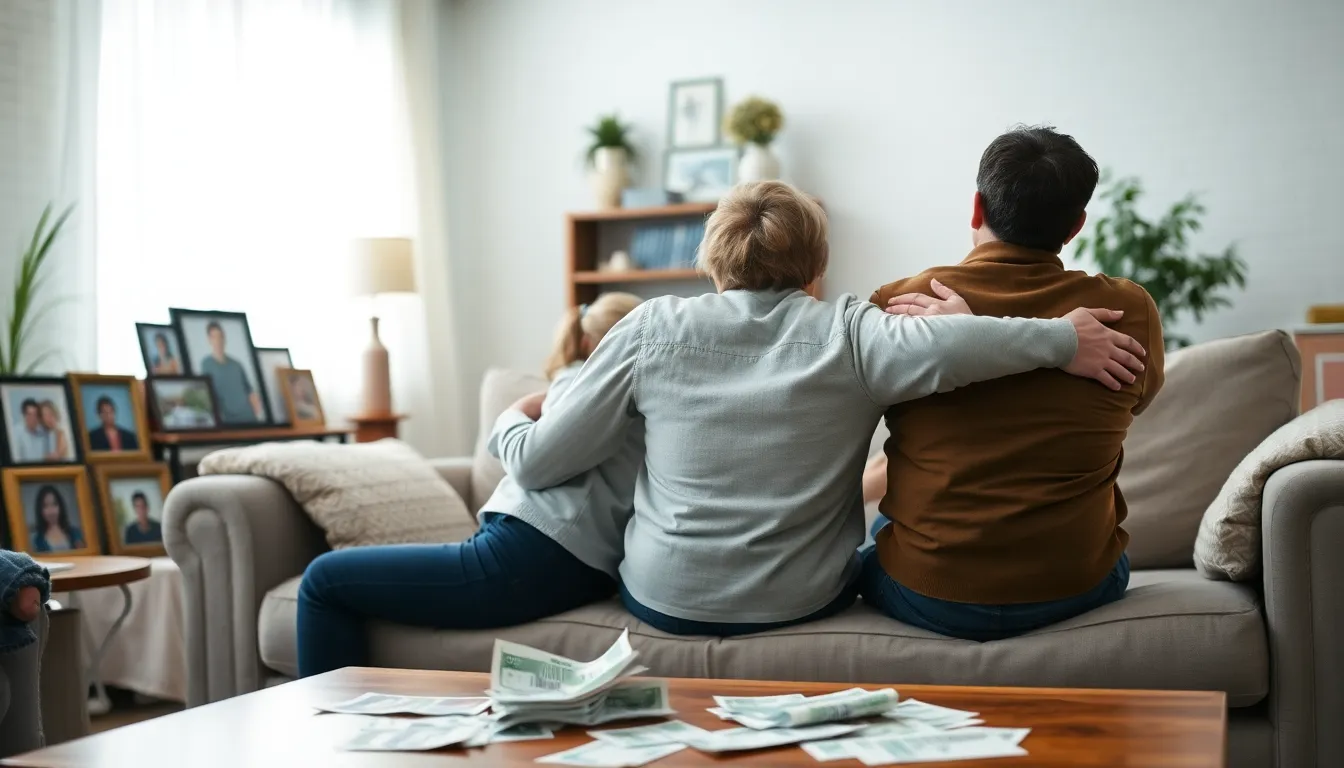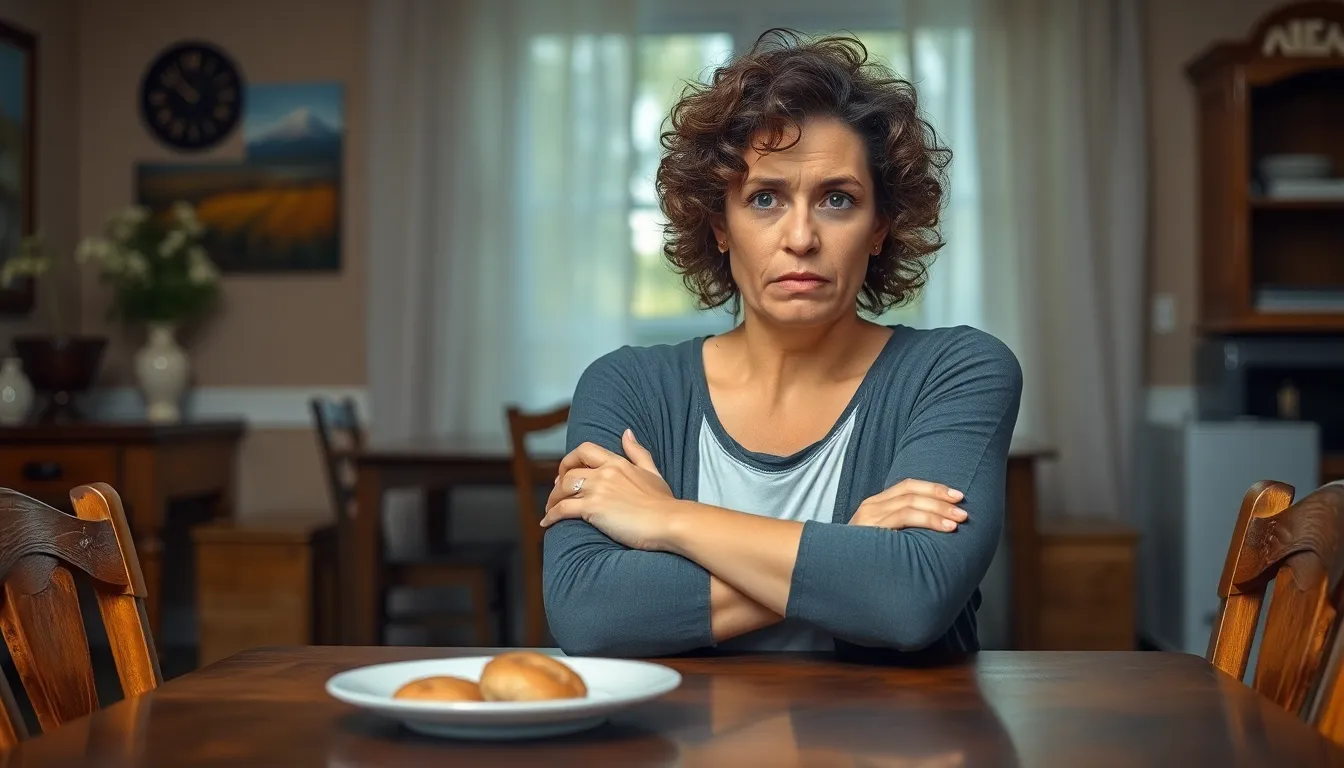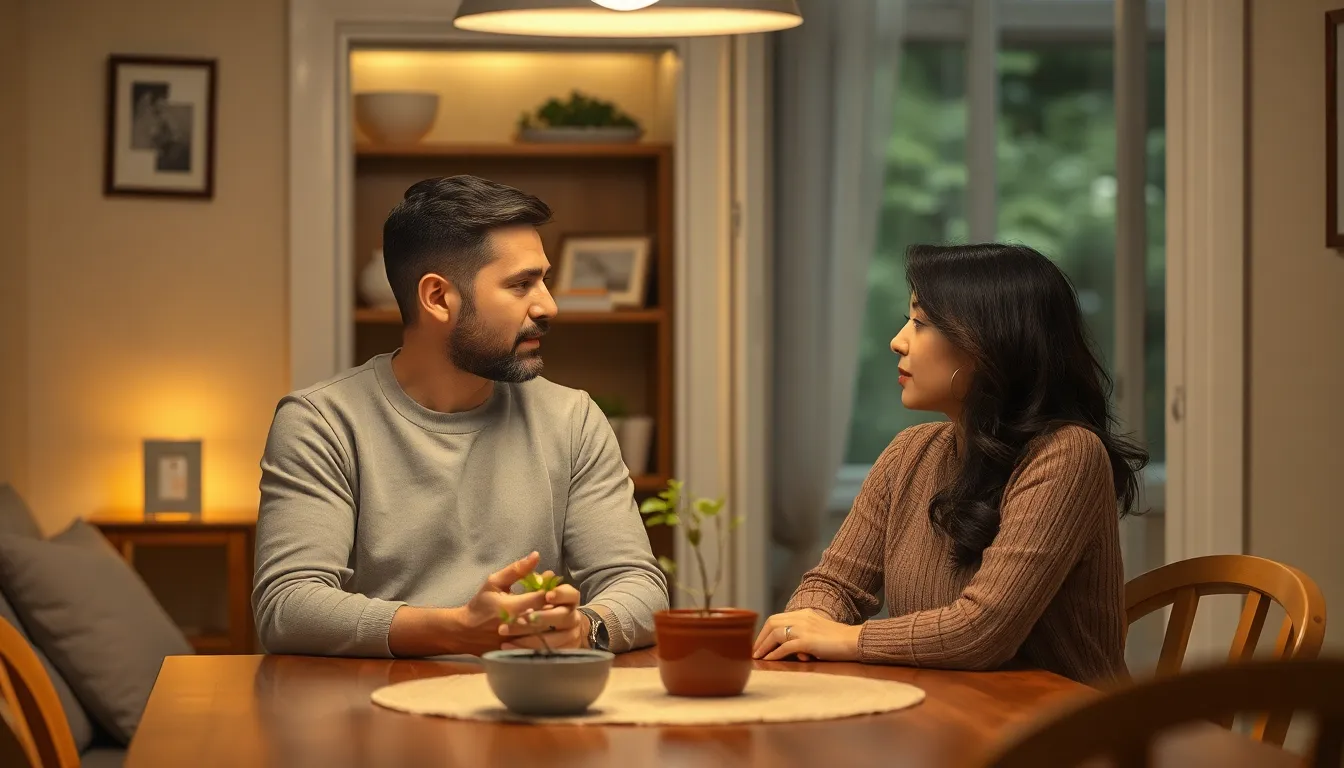Marriage should feel like a partnership where both spouses appreciate each other’s efforts and contributions. When one partner consistently fails to acknowledge or value what the other brings to the relationship it creates an emotional imbalance that can slowly erode the foundation of trust and love.
We’ve all heard stories of relationships where one person gives endlessly while receiving little recognition in return. An ungrateful spouse doesn’t just overlook the small gestures – they dismiss major sacrifices and contributions as if they’re expected rather than appreciated. This pattern of behavior can leave the giving partner feeling invisible and undervalued.
Recognizing these warning signs early can help you address the issue before resentment builds up and damages your marriage permanently. Whether it’s constant criticism without acknowledgment or taking your efforts for granted we’ll explore the key behaviors that signal a deeper problem in your relationship dynamics.
What Makes a Wife Appear Ungrateful
Several behavioral patterns contribute to perceptions of ungratefulness in marriage. Understanding these underlying factors helps distinguish between temporary circumstances and persistent attitudes that threaten relationship stability.
Communication Breakdown Creates Misunderstandings
Miscommunication often masks genuine appreciation behind poor expression. Wives experiencing stress from work, childcare responsibilities, or personal challenges may struggle to articulate gratitude effectively. Their overwhelmed state doesn’t reflect a lack of appreciation but rather an inability to communicate feelings clearly.
Cultural backgrounds shape how people express gratitude differently. Some individuals grew up in families where appreciation was assumed rather than verbalized. These wives may feel grateful internally but never learned to express thanks openly.
Unmet Expectations Drive Negative Responses
Unbalanced expectations create resentment that overshadows appreciation. Wives who feel their own contributions go unrecognized may withhold gratitude as a protective mechanism. They believe their partners should acknowledge their efforts first before they express appreciation in return.
Different love languages cause appreciation gaps between spouses. A wife who values quality time may not recognize acts of service as expressions of love. Her apparent ungratefulness stems from receiving care in a way that doesn’t resonate with her emotional needs.
Mental Health Challenges Affect Gratitude Expression
Depression and anxiety significantly impact how people perceive and express appreciation. These conditions create negative thought patterns that make it difficult to recognize positive gestures from partners. Wives struggling with mental health issues may appear ungrateful when they’re actually battling internal emotional battles.
Postpartum depression affects many new mothers and can manifest as seeming ungratefulness. The hormonal changes and emotional overwhelm make it challenging to appreciate support, even when it’s genuinely needed and welcomed.
Past Trauma Influences Present Behavior
Previous relationship trauma creates defensive behaviors that appear ungrateful. Wives who experienced manipulation or conditional love in past relationships may struggle to accept gestures without suspicion. Their protective mechanisms prevent them from expressing vulnerability through gratitude.
Trust issues from childhood experiences with caregivers affect adult relationships. Women who learned that appreciation led to increased expectations may unconsciously withhold gratitude to maintain emotional boundaries.
Common Signs of an Ungrateful Wife
Recognizing patterns of ungratefulness helps us understand when appreciation becomes consistently absent from a marriage. These behavioral indicators create emotional distance and undermine the foundation of mutual respect that healthy relationships require.
Lack of Appreciation for Efforts
Partners who fail to acknowledge daily contributions create environments where giving feels invisible and unrewarded. Research shows this pattern leads to feelings of underappreciation and disillusionment in relationships, as documented in relationship studies. Small gestures like preparing meals, handling household tasks, or managing finances go unnoticed when wives consistently overlook these efforts. Major sacrifices such as career changes, financial support during difficult times, or personal compromises receive the same indifferent treatment. We observe that partners begin questioning their value when their consistent efforts receive no recognition or acknowledgment.
Constant Criticism and Complaints
Criticism replaces gratitude when wives focus exclusively on perceived shortcomings rather than positive contributions. Instead of expressing appreciation, ungrateful partners frequently criticize various aspects of relationships or their partner’s actions according to relationship research. Comments about inadequate income levels, insufficient help with children, or failure to meet unrealistic standards become routine conversations. Complaints about social activities, extended family interactions, or career decisions dominate discussions where appreciation once existed. We notice that constructive feedback transforms into persistent negativity that erodes emotional connection between spouses.
Taking Things for Granted
Assuming partner contributions represent baseline expectations rather than thoughtful gestures demonstrates fundamental ungratefulness. Such behavior involves treating everything done by partners as expected and normal without showing appreciation for these gestures. Morning coffee preparation, car maintenance, bill payments, and childcare responsibilities become invisible parts of daily routine. Special occasions like anniversaries, birthdays, or romantic gestures receive minimal acknowledgment because wives expect these demonstrations. We recognize this pattern when partners stop noticing the effort required to maintain household stability and relationship happiness.
Rarely Expressing Gratitude
Absent verbal appreciation creates emotional voids that damage relationship satisfaction over extended periods. Ungrateful wives may rarely or never express thanks for things their partners do, creating strain through this absence of positive feedback. Simple phrases like “thank you,” “I appreciate this,” or “that means a lot” disappear from regular conversations. Physical affection, written notes, or reciprocal gestures that demonstrate gratitude become increasingly rare occurrences. We understand that consistent silence about partner contributions signals deeper issues with recognition and emotional awareness within marriages.
How Ungratefulness Affects Marriage
Ungratefulness creates profound disruptions in marital relationships that extend far beyond surface level interactions. The continuous lack of appreciation erodes the foundational elements that keep couples connected and committed to each other.
Impact on Emotional Connection
Ungratefulness systematically dismantles the emotional bonds between spouses by reducing the intimacy that couples share. Partners who consistently receive criticism instead of appreciation begin to withdraw emotionally as a protective mechanism. The lack of acknowledgment makes interactions feel hollow and transactional rather than meaningful exchanges between loving partners.
Trust deteriorates when one spouse feels consistently unvalued even though their efforts to contribute to the relationship. Research shows that continuous lack of appreciation makes partners feel untrusted and question their worth within the marriage. Emotional distance grows as the unappreciated partner stops sharing vulnerable thoughts and feelings.
Intimate moments become increasingly rare when gratitude disappears from daily interactions. Couples find themselves going through the motions of marriage without the emotional depth that characterizes healthy relationships. The giving partner may begin to feel like a service provider rather than a cherished spouse.
Effects on Communication
Communication patterns shift dramatically when ungratefulness dominates marital interactions. Negative feedback loops develop where both partners feel unheard and unappreciated, creating cycles of defensiveness and blame. Conversations become focused on complaints and criticisms rather than collaborative problem solving.
Openness decreases as partners become reluctant to share their true feelings and thoughts. The fear of receiving criticism or indifference instead of understanding causes spouses to retreat into emotional silos. This reluctance to communicate openly further strains the relationship and makes resolving conflicts more challenging.
Conflict resolution becomes nearly impossible when gratitude is absent from communication. Partners struggle to find common ground because negative communication patterns overshadow any attempts at constructive dialogue. The lack of appreciation escalates disagreements into full blown arguments that damage the relationship foundation.
Daily conversations lose their warmth and connection when one partner consistently fails to acknowledge positive contributions. Simple exchanges about household matters or work become opportunities for criticism rather than moments of mutual support and understanding.
Understanding the Root Causes
Ungrateful behavior in marriage rarely emerges without underlying reasons that drive these patterns. Identifying these root causes helps us understand why appreciation breaks down in relationships.
Unmet Expectations
Wives often develop exact expectations about marriage partnerships that remain uncommunicated to their spouses. These silent assumptions create disappointment when reality doesn’t match the imagined scenario, leading to withholding gratitude as an emotional response. Research shows that when expectations about partnership roles, emotional support, or personal life fulfillment go unaddressed, dissatisfaction manifests as ungrateful behavior patterns.
Unexpressed needs compound the problem because partners can’t address issues they don’t recognize. Women may expect certain levels of emotional intimacy, household participation, or career support without clearly communicating these desires. The resulting gap between expectation and reality creates resentment that blocks natural appreciation responses.
Communication Breakdowns
Poor communication creates misunderstandings that prevent both recognition and expression of appreciation in marriages. Partners may struggle to articulate their needs while simultaneously failing to acknowledge their spouse’s efforts effectively. This dual communication failure creates cycles where neither partner feels heard or valued.
Misunderstandings develop when couples don’t establish clear channels for expressing gratitude and addressing concerns. Women experiencing communication difficulties may resort to criticism instead of constructive feedback, creating negative interaction patterns. The absence of effective dialogue means positive contributions go unrecognized while grievances accumulate without resolution.
Personal Stress and External Factors
External pressures from work, health issues, financial strain, or family responsibilities significantly impact a wife’s ability to express gratitude naturally. Stress hormones affect emotional regulation, making it difficult to recognize positive gestures or communicate appreciation effectively. Women juggling multiple responsibilities may become overwhelmed, causing them to focus primarily on immediate problems rather than acknowledging their partner’s support.
Financial concerns create particular strain on marital appreciation, as worry about money overshadows recognition of non financial contributions. Health challenges, whether physical or mental, can limit emotional bandwidth available for expressing gratitude. Family issues involving children, aging parents, or extended relatives add additional stress layers that compete with marital appreciation for emotional resources.
Addressing the Issue Together
Confronting ungratefulness in marriage requires collaborative effort from both partners. Joint engagement creates opportunities for meaningful change and renewed appreciation.
Open and Honest Conversations
Creating safe spaces for dialogue forms the foundation of addressing ungratefulness. We must initiate calm conversations about feelings and unmet needs without confrontation or blame. These discussions allow both partners to express what they require to feel more grateful and help each understand how behaviors impact the relationship.
During these conversations, we encourage the ungrateful partner to share her perspective on what she needs to feel more appreciative. Simultaneously, the other partner can explain how the lack of recognition affects him emotionally. These exchanges often reveal underlying issues such as stress, unmet expectations, or different love languages that contribute to the problem.
Active listening becomes crucial during these discussions. We focus on understanding rather than defending our positions. This approach helps identify exact behaviors that feel unappreciated and creates pathways for positive change.
Setting Realistic Expectations
Establishing clear expectations prevents misunderstandings about appreciation and support. We discuss what each partner expects in terms of gratitude expression and acknowledgment of efforts. This clarity helps both individuals understand their roles and responsibilities within the relationship.
Realistic expectations account for each partner’s capacity to express gratitude. Some people naturally verbalize appreciation while others show it through actions. We work together to identify these different styles and find middle ground that satisfies both partners.
These conversations also address the frequency and types of acknowledgment each person values. One partner might need daily verbal affirmations while the other prefers occasional but meaningful gestures. Understanding these preferences helps create sustainable patterns of appreciation.
Rebuilding Appreciation and Gratitude
Developing consistent gratitude practices strengthens emotional bonds between partners. We establish daily rituals where both individuals express thanks for exact actions or qualities they noticed. These exercises train our minds to focus on positive contributions rather than shortcomings.
Gratitude journals provide another effective tool for rebuilding appreciation. Each partner writes three things they’re grateful for about the other person daily. Sharing these entries weekly creates opportunities for positive reinforcement and deeper connection.
Couples therapy offers professional guidance for implementing gratitude exercises and addressing underlying causes of unappreciation. Therapists help identify communication patterns that hinder gratitude expression and provide strategies for overcoming these barriers. Regular sessions create accountability and support systems that reinforce positive behavioral changes over time.
When to Seek Professional Help
Recognizing when ungrateful behavior crosses into territory requiring professional intervention protects both partners from lasting emotional damage. Persistent patterns of ungratefulness that resist change through personal efforts signal the need for specialized support.
Marriage counselors provide objective perspectives when communication breakdowns prevent partners from addressing ungrateful behavior effectively. Couples experiencing frequent arguments about appreciation levels benefit from professional guidance to establish healthy dialogue patterns. Therapists help structured conversations that help both partners understand underlying causes of ungrateful behavior.
Professional intervention becomes essential when emotional distress significantly impacts daily functioning. Partners feeling consistently undervalued may develop depression or anxiety requiring clinical attention. Mental health professionals address both individual wellbeing and relationship dynamics simultaneously.
Toxic environments created by persistent ungrateful behavior damage long term relationship viability. Counselors teach exact strategies for rebuilding mutual respect and appreciation. Professional support prevents small gratitude issues from escalating into irreparable relationship damage.
Communication breakdowns that prevent expressing feelings or resolving conflicts indicate professional help requirements. Therapists provide tools for effective communication when partners struggle to discuss appreciation needs constructively. Specialized guidance helps couples navigate complex emotional territories safely.
Individual therapy addresses personal factors contributing to ungrateful behavior patterns. Mental health professionals help identify underlying issues like past trauma or unrealistic expectations. Combined individual and couples therapy approaches target both personal growth and relationship improvement.
Professional help timing matters significantly for relationship recovery success. Early intervention prevents resentment from becoming entrenched behavioral patterns. Waiting until relationships reach crisis points limits available therapeutic options and potential outcomes.
Conclusion
Recognizing signs of an ungrateful wife requires understanding that gratitude challenges often stem from deeper underlying issues rather than simple ungratefulness. We’ve explored how communication breakdowns cultural differences and unmet expectations can create barriers to appreciation in marriage.
The key lies in addressing these patterns early through open dialogue realistic expectations and consistent gratitude practices. When both partners commit to understanding each other’s perspectives and expressing appreciation regularly relationships can heal and thrive.
Remember that persistent ungratefulness may require professional intervention to prevent lasting emotional damage. We encourage couples to seek marriage counseling when gratitude issues resist change or significantly impact daily functioning. With the right approach and commitment most relationships can rebuild mutual respect and appreciation for long-term success.
Frequently Asked Questions
What are the main signs of an ungrateful wife in marriage?
Common signs include consistently failing to acknowledge your efforts, offering constant criticism instead of appreciation, taking your contributions for granted, and rarely expressing verbal gratitude. These behaviors create emotional distance and make partners feel undervalued, leading to relationship strain and reduced intimacy over time.
Why do some wives struggle to express gratitude in marriage?
Several factors contribute to this challenge, including communication breakdowns due to stress, cultural backgrounds that don’t emphasize verbal appreciation, unmet expectations causing resentment, differing love languages, mental health issues like depression or anxiety, and past trauma that creates defensive behaviors.
How does ungratefulness affect a marriage?
Ungratefulness erodes emotional connections and intimacy by making partners feel undervalued and withdraw emotionally. It creates negative communication patterns, makes conflict resolution difficult, and transforms meaningful interactions into transactional exchanges, ultimately damaging trust and relationship satisfaction.
What causes ungrateful behavior in marriage?
Root causes include unmet expectations leading to disappointment, poor communication creating misunderstandings, and external stressors like financial strain, work pressure, or health issues. These factors can overwhelm someone’s ability to recognize and express appreciation for their partner’s efforts and support.
How can couples address ungratefulness in their relationship?
Start with open, honest conversations in a safe space without blame. Set realistic expectations about appreciation styles, develop consistent gratitude practices like daily thank-you rituals, and consider couples therapy for professional guidance. Both partners must commit to understanding and changing harmful patterns.
When should couples seek professional help for gratitude issues?
Seek professional intervention when ungrateful patterns persist despite efforts to change, when arguments about appreciation become frequent, or when emotional distress significantly impacts daily life. Early therapy intervention prevents resentment from becoming entrenched and improves chances of successful relationship recovery.
Can ungratefulness be overcome in marriage?
Yes, with collaborative effort from both partners. Success requires recognizing the problem, understanding underlying causes, implementing consistent gratitude practices, and potentially seeking professional guidance. The key is both partners’ willingness to change and commitment to rebuilding mutual appreciation and respect.



















